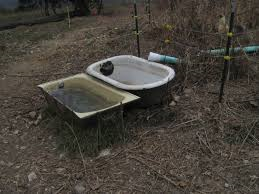
Breaking News
 China Will Close the Semiconductor Gap After EUV Lithography Breakthrough
China Will Close the Semiconductor Gap After EUV Lithography Breakthrough
 The Five Big Lies of Vaccinology
The Five Big Lies of Vaccinology
 Large global study analyzing data from 192 countries has sparked intense debate by suggesting...
Large global study analyzing data from 192 countries has sparked intense debate by suggesting...
Top Tech News
 EngineAI T800: Born to Disrupt! #EngineAI #robotics #newtechnology #newproduct
EngineAI T800: Born to Disrupt! #EngineAI #robotics #newtechnology #newproduct
 This Silicon Anode Breakthrough Could Mark A Turning Point For EV Batteries [Update]
This Silicon Anode Breakthrough Could Mark A Turning Point For EV Batteries [Update]
 Travel gadget promises to dry and iron your clothes – totally hands-free
Travel gadget promises to dry and iron your clothes – totally hands-free
 Perfect Aircrete, Kitchen Ingredients.
Perfect Aircrete, Kitchen Ingredients.
 Futuristic pixel-raising display lets you feel what's onscreen
Futuristic pixel-raising display lets you feel what's onscreen
 Cutting-Edge Facility Generates Pure Water and Hydrogen Fuel from Seawater for Mere Pennies
Cutting-Edge Facility Generates Pure Water and Hydrogen Fuel from Seawater for Mere Pennies
 This tiny dev board is packed with features for ambitious makers
This tiny dev board is packed with features for ambitious makers
 Scientists Discover Gel to Regrow Tooth Enamel
Scientists Discover Gel to Regrow Tooth Enamel
 Vitamin C and Dandelion Root Killing Cancer Cells -- as Former CDC Director Calls for COVID-19...
Vitamin C and Dandelion Root Killing Cancer Cells -- as Former CDC Director Calls for COVID-19...
 Galactic Brain: US firm plans space-based data centers, power grid to challenge China
Galactic Brain: US firm plans space-based data centers, power grid to challenge China
20 Strategies and Tips for Creating a Rainwater Catchment System

In a continuing effort to educate our readers on the finer aspects of self-sufficiency, I have invited Dan Chiras to share his best strategies and tips for creating a rain catchment system that works.
If Dan's name sounds familiar, it is because he is the author of two Prepper Book Festival titles, Survive in Style: The Prepper's Guide to Living Comfortably through Disasters and Power From the Sun: A Practical Guide to Solar Electricity. Today he is here with specifics on collecting rainwater, regardless of where you live.
Let it Rain: Collecting Rainwater from Your Roof to Survive in Style
In a crisis, rainwater can become one of a prepper's greatest allies. If you live in an area with as few as 30 inches (12 cm) of precipitation a year, you may be able to live entirely off water falling on the roof of your home. That is, you could collect enough water from precipitation to meet all of your needs for cooking, cleaning, bathing, flushing toilets, watering gardens, and supplying a few chickens and a goat or cow – if you use water efficiently. I've done it for many years.

 This is why RAM costs so much
This is why RAM costs so much

